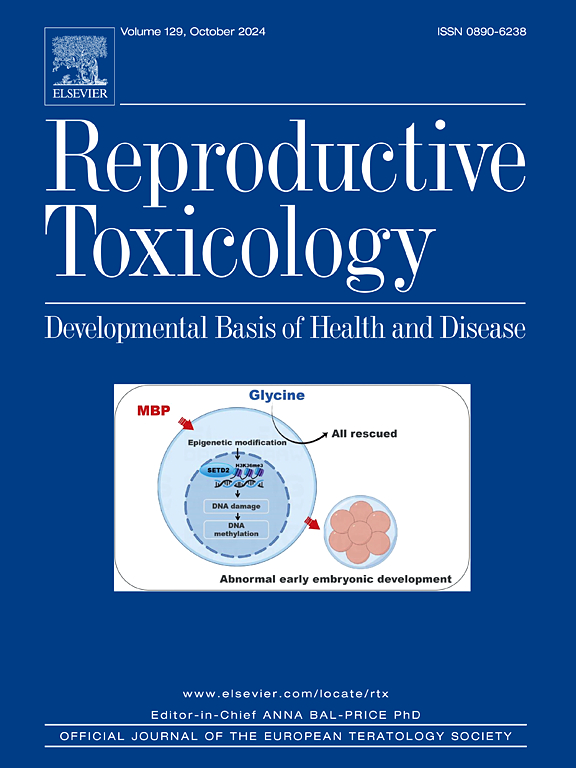Positioning nutrigenomics and nutrigenetics within the framework of male infertility exploration
IF 2.8
4区 医学
Q2 REPRODUCTIVE BIOLOGY
引用次数: 0
Abstract
Male infertility, a complex result of genetic, environmental, and lifestyle factors, has gained significant focus in contemporary medical research. The intricate interplay between genetics, nutrition, and male fertility is crucial for understanding the complex mechanisms that underlie male reproductive health. The twenty-first century has seen a paradigm shift in medicine, where holistic personalized medical care is posited to be ideal and effective. In this regard, this narrative review explored how the convergence of dietary habits and genetic predispositions influence male fertility in the context of predictive, preventive, and personalized medicine. This review explored the evolving landscape of genetic insights into male infertility, creating awareness of their possible engagement as genetic predictors for idiopathic male infertility. It also dissects the roles of nutrigenomics and nutrigenetics in shaping preventive male reproductive medicine strategies through distinguishing the influence of dietary components on genetic expression and further elucidating how epigenetic alterations, influenced by dietary components, impact male fertility, potentially imparting transgenerational effects. Furthermore, this review offers potential personalized reproductive remedies in the form of functional and super foods, gut microbiome enhancers, redox homeostasis and proposes personalized nutrition as an intervention with high prospects in the context of improving male fertility.
营养基因组学和营养遗传学在男性不育症研究框架中的定位。
男性不育是遗传、环境和生活方式等因素综合作用的结果,已成为当代医学研究的重点。遗传、营养和男性生育能力之间错综复杂的相互作用对于理解男性生殖健康背后的复杂机制至关重要。21世纪已经看到了医学范式的转变,其中整体个性化医疗保健被认为是理想和有效的。在这方面,这篇叙述性综述探讨了饮食习惯和遗传倾向如何在预测性、预防性和个性化医学的背景下影响男性生育能力。这篇综述探讨了男性不育症遗传见解的发展前景,使人们意识到它们可能作为特发性男性不育症的遗传预测因子。它还通过区分饮食成分对基因表达的影响,剖析营养基因组学和营养遗传学在塑造男性预防性生殖医学策略中的作用,并进一步阐明受饮食成分影响的表观遗传改变如何影响男性生育能力,并可能产生跨代效应。此外,本综述提出了潜在的个性化生殖疗法,如功能性和超级食物、肠道微生物组增强剂、氧化还原稳态,并提出个性化营养作为一种干预措施,在提高男性生育能力方面具有很高的前景。
本文章由计算机程序翻译,如有差异,请以英文原文为准。
求助全文
约1分钟内获得全文
求助全文
来源期刊

Reproductive toxicology
生物-毒理学
CiteScore
6.50
自引率
3.00%
发文量
131
审稿时长
45 days
期刊介绍:
Drawing from a large number of disciplines, Reproductive Toxicology publishes timely, original research on the influence of chemical and physical agents on reproduction. Written by and for obstetricians, pediatricians, embryologists, teratologists, geneticists, toxicologists, andrologists, and others interested in detecting potential reproductive hazards, the journal is a forum for communication among researchers and practitioners. Articles focus on the application of in vitro, animal and clinical research to the practice of clinical medicine.
All aspects of reproduction are within the scope of Reproductive Toxicology, including the formation and maturation of male and female gametes, sexual function, the events surrounding the fusion of gametes and the development of the fertilized ovum, nourishment and transport of the conceptus within the genital tract, implantation, embryogenesis, intrauterine growth, placentation and placental function, parturition, lactation and neonatal survival. Adverse reproductive effects in males will be considered as significant as adverse effects occurring in females. To provide a balanced presentation of approaches, equal emphasis will be given to clinical and animal or in vitro work. Typical end points that will be studied by contributors include infertility, sexual dysfunction, spontaneous abortion, malformations, abnormal histogenesis, stillbirth, intrauterine growth retardation, prematurity, behavioral abnormalities, and perinatal mortality.
 求助内容:
求助内容: 应助结果提醒方式:
应助结果提醒方式:


